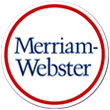table
Surface on which the balls roll; it is supported by legs, has a rectangular top and is horizontal and level.
top pocket 
Corner pocket located at the foot cushion and opposite the balk area.
bottom pocket 
Corner pocket located at the head cushion and next to the balk area.
D 
Semicircle whose center is on and in the middle of the balk line; the game starts from here.
head cushion 
Rubber padding that covers the inner side of the rail next to the balk area; the balls bounce against it.
rail 
Table frame to which the rubber is attached and covered with felt; it delimits the playing surface.
billiard spot 
Spot that marks the position of the black ball in snooker; it is about 13 in from the foot cushion on the table’s longitudinal center line.
pyramid spot 
Spot that marks the position of the pink ball in snooker; it is halfway between the center spot and the foot cushion on the table’s longitudinal center line.
baize 
Felt fabric that covers the playing surface and the inner side of the rails.
center pocket 
Side pocket in the middle of the table’s side rail.
hook 
Curved part positioned along the tables that holds the cues and the rack.
balk area 
Zone bordered by the balk line and the head cushion, including the "D"; this zone is used only in English billiards.
balk line 
Line marked across the width of the table 29 in from the head cushion; it serves as a benchmark for snooker at the start of the game.
center spot 
Spot that marks the position of the blue ball in snooker; it is located halfway between the center pockets and the head and foot cushions.
balk line spot 
Spot in the middle of the balk line that marks the position of the brown ball in snooker (there are two other spots at the intersections of the balk line and the "D").











